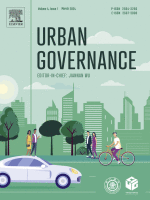
Is a Mexican researcher, communicator, and engineer of Syrian origin, specializing in geopolitics, technological innovation, and energy management. He holds a Master's degree in Electrical Engineering and another in Communication Management, as well as a Ph.D. in Sciences with a specialty in Administrative Sciences from the Instituto Politécnico Nacional. His academic research focuses on the use of artificial intelligence in energy and organizational management, contributing to the development of applied technology in both corporate environments and smart public administration models.
As an analyst, he actively participates in geopolitical debate forums for media outlets in Mexico, Colombia, Chile, Peru, Argentina, Spain, and the United States. He also hosts his weekly radio show, "El Mundo Hoy," with Mariano Osorio on Joya 93.7 FM.
He speaks Arabic, Spanish, French and English. He is a professor at different universities in Mexico.

News
Hybrid Modeling for Electricity Prices: Fuzzy Subtractive clustering with Particle Swarm Optimization
Published in: 'Arabian Journal of Science and Engineering', The official journal of King Fahd University of Petroleum and Minerals, published by Springer. Peer-reviewed research in science and engineering
Advancing smart public administration: Challenges and benefits of artificial intelligence
Published in: 'Urban Governance Journal', he official journal of Shanghai Jiao Tong University
Editorial: Elsevier, ScienceDirect.
Book: Energía, sistemas de gestión y eficiencia empresarial
In a world where optimizing energy consumption is key to competitiveness and sustainability, this book offers a comprehensive guide to efficient energy management in organizations and cities.
From the fundamentals of energy efficiency to the implementation of Energy Management Systems and maturity models, this work presents practical tools and classic and innovative methodologies for strategic management. The authors discuss approaches such as Lean energy management, the use of energy management matrices, the importance of energy auditing, and the implementation of key economic indicators in energy management to assess the impact of the actions implemented in organizations... (read the book)
Consumer Happiness in the Purchase of Electric Vehicles: a Fuzzy Logic Model
This study analyzes customer happiness in acquiring an electric vehicle, considering pleasure as an ambiguous language term that conventional models have inadequately incorporated. This research was conducted using a fuzzy Delphi method survey targeting a specific consumer group and two fuzzy inference systems: a multi-input single-output FIS model and an FIS Tree employing a hierarchical fuzzy inference structure, which leverages the survey's training data to optimize the models using different machine learning algorithms... (Lee el artículo completo)
Use FACTS elements to improve energy exchange between countries in response to the high penetration of variable renewable energy
Integrating Variable Renewable Energy sources (VRE) into Electric Power System (EPS) requires optimizing the synergy between VRE characteristics, PES flexibility elements, and local Electric Market operations. However, during advanced integration phases, where VRE accountsfor a significant portion of the system’s energy, and in the face of stability issues caused by energy excess, cross- border energy exchange appears to be one of the most effective solutions for Energy Management..... (Read full paper)

AI projects
Artificial intelligence is not GPT Chat; this is one of its uses, but AI is much more! This page provides a quick and basic summary of some of Aboud Onji's research on AI and its applications.
Analysis and interviews
¿Cuál es el efecto real de los aranceles de Donald Trump a México y a Estados Unidos? Es verdad que también tendrán un efecto negativo al país norteamericano? (Lee el artículo completo)

We´ve collaborated with
%209_14_51.png)






%2010_56_50.png)




%2010_58_42.png)


